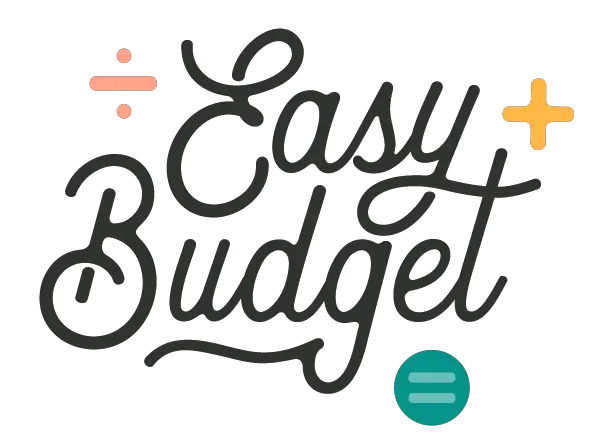This post may contain affiliate links where I earn a commission, at no additional cost to you, if you decide to make a purchase after clicking on a link. Please see our Disclosure Policy for full details. Thank you for your support!
So you want to raise your credit score? Smart move! Your credit score is essential when applying for a new credit card, personal loan, mortgage, or any other loan. Even if you’re not a big fan of debt, your credit score is often considered when renting an apartment, getting a cell phone contract, or even getting a job!
If you have a lower credit score, there are ways you can raise it. But keep in mind that improving your credit score doesn’t happen overnight.

As a general rule of thumb, you can raise your score significantly in 3-6 months with some of these tips. It may take longer to improve your score depending on the negative items you have on your credit reports or the issues you’re trying to overcome.
If you have a less than stellar credit score and are wondering how to improve it, start by understanding how credit scores are calculated. Then take the following steps to raise your credit score!
Let’s get to it!
What is a Credit Score?
Your credit score is a three-digit number that lenders use to determine your “creditworthiness.” It tells them how risky you would be as a borrower.
Your credit score represents your ability to pay back debt.
The higher your credit score, the less risky you are seen by your potential lenders. This means you’re more likely to be approved for a credit card, loan, or be charged a lower interest rate when opening a new credit account. You may even be able to negotiate a lower rate on an existing credit account.
On the other hand, the lower your credit score, the riskier you are seen by your potential lenders. You’ll be less likely to be approved for a credit card, personal loan, line of credit, etc. Even if you are approved for a credit card or loan, you are likely to pay a higher interest rate than those with higher scores.
A credit score usually ranges between 300 and 850. FICO Score and VantageScore are the most well-known scoring models. They are used by credit rating agencies/bureaus to calculate an individual’s credit score.
Your credit score is created by credit reporting agencies/bureaus from information held on your credit report. Your credit report is a record of your credit history. It tells lenders your payment history, how much debt you currently have, how long you have been managing credit accounts, forms of credit you have, and how often you have applied for credit.
Experian, TransUnion, and Equifax are the three major credit bureaus. Each of them has its own scoring model to calculate an individual’s credit score based on the information held on that individual’s credit report. This means you may have more than one credit score if the information held on each report differs!

How Your Credit Score is Calculated
If you want to raise your credit score, it’s important for you to understand how a score is calculated.
Scoring calculations are based on a number of credit factors. There are different credit scoring models, but they all take the following factors into consideration when it comes to calculating an individual’s credit score:
Top 5 Factors That Determine Your Credit Score:
Payment history 35%
Credit utilization rate (percent of your total credit limit you are using) 30%
Length of credit history 15%
Credit mix (the types of credit you have) 10%
Recent credit inquiries on report/New credit 10%
It is crucial to understand how the above scoring factors affect your credit score. This way, you can work on how to improve and maintain your credit score!
Your payment history accounts for 35% of your credit score. Making credit card and other loan payments on time every month has the most impact on your credit score.
How much debt you have has 30% impact on your score. If you have a large balance on your credit accounts, your score will be lowered.
The average age of all your credit accounts has 15% impact on your credit score. The longer you’ve had the credit, the better.
If you have many types of credit, and you can manage each one well, your credit score will improve. Type of credit you have makes up 10% of your score.
The last scoring factor is recent inquiries/new credit that accounts for 10% of your credit score. Applying for several lines of credit within a short period of time can hurt your score. Getting new credit can also hurt your score if you cannot afford it.
6 Ways to Improve Your Credit Score
Once you have figured out how credit score is calculated and how the credit factors affect your score, you can take steps to improve it.
If you have a less than stellar credit score, here are some surefire ways to raise your credit score:
1. Pay your bills and minimum payments on-time, every time
Your payment history is the most important factor in determining your credit score, which accounts for 35% of your total score. Making regular, on-time monthly payments will boost your credit score!
This is the #1 way to raise your credit score!
If you’re putting off certain payments, paying on them again on-time will boost your score.
If you are new to credit, you could raise your score soon by paying your bills on time every month. Missing a credit card, loan, cell phone or any other credit or service payment will remain on your credit report for up to six years. However, making regular payments on time longer after a missed or late payment in the past will improve your credit score over time.
The impact of past credit problems on your credit score fades as time passes and as you continue to show good credit habits by paying all bills and minimum payments on-time, every time.
Having a positive payment history will help grow your creditworthiness quickly!
2. Keep your credit utilization ratio low
Your credit utilization ratio refers to how much of your available credit you are using.
For example, if you have a credit card with a $5,000 credit limit and you are carrying a balance of $4,500 on it, that’s a 90% credit utilization, which is too high. This will negatively impact your score. If you keep a $0 or even a $300 balance on the card, that’s a 0%-6% utilization rate which is much better for your score!
Your credit utilization ratio accounts for 30 percent of your score, so keeping your balances low is the 2nd most important thing you can do to raise it. High credit utilization ratio or, in other words, high outstanding balances, can lower your score.
The credit rating agencies or bureaus factor in your total credit utilization ratio across all of your credit accounts, as well as the utilization ratio on each credit card to calculate your score. Your credit score can go down or up depending on the balance of your debt to your total credit limit.
If you have a high utilization ratio, opening up new credit accounts or getting a credit limit increase will decrease this ratio, but doing so can reduce your score temporarily.
The most effective way to raise your score by keeping your credit utilization ratio low is to pay down your outstanding balances. Keeping this ratio low will not only raise your score but also reduce your debt!
Related reading: How to Pay off Debt Fast With the Debt Snowball Method
3. Start building credit as soon as possible
The longer you have had credit and used it responsibly, the better your credit score will be. This is because lenders want to see your debt repayment pattern in the past to predict how your future repayment pattern will be. As a result, credit bureaus factor in the length of credit history to calculate a credit score.
The average age of all of the credit accounts in your credit report accounts for 15% of your credit score. So if you want to raise your score, don’t close an old account or accounts you have paid off.
Keeping all of your accounts open (as long as there is no fee to keep them open) will increase the length of your average credit history, thus improving your credit score.
Some accounts close automatically when you pay off the item (i.e. a car loan, student loan). Others require you to close them yourself (credit cards). Be aware of this if you need to keep your credit high for a home purchase, or something of that nature.
4. Use different types of credit accounts to diversify your credit mix
Credit bureaus factor in credit mix to calculate your credit score. This is because credit bureaus and lenders want to see if you have handled multiple types of credit well. Your credit mix makes up to 10% of your credit score.
So if you have more than one type of credit, it will raise your score, providing you manage multiple types of credit well.
Applying for and getting new types of credit products such as a retailer credit card, personal loan or mortgage loan will give you a healthier credit mix and raise your credit score if you can manage the payments.
That being said, don’t open up new accounts if you can’t afford extra credit, because otherwise you could end up hurting your score. Also, this can be a sneaky way to end up in more debt, which I don’t recommend.
5. Apply for new credit accounts only if needed/Limit hard inquiries
If necessary and you have a long-established credit history, it is okay to apply for a credit card, personal loan, or another line of credit. By getting new credit, you can lower your credit utilization ratio and diversify your credit mix.
Although new credit makes up only 10% of a FICO score, think carefully before you apply for and open new credit products. If you apply for multiple credit products within a short period of time, your score can be lowered drastically.
This is because every time you apply for a credit product, each application is recorded as a hard inquiry on your credit report, and it reduces your score by a few points. Too many inquiries reported on your credit report will hurt your score significantly.
6. Check your credit report for errors
On average, 1 in 5 people has an error on their credit report. That is why it is crucial to check your credit report for errors at least once a year, as errors on your credit report can affect your score and make you appear to be a risky borrower to lenders.
Thanks to the federal governments FTC laws, you are entitled to one free credit report from each of the credit bureaus each year. Get a copy of your free credit reports once a year from the three main credit rating companies: Equifax, Experian and TransUnion because information found in each of these reports may be different.
It’s important to note that your free annual credit report doesn’t actually show your score. It just gives you full data on all the things affecting your credit so you can check it over for accuracy.
When you check your credit reports, look for common mistakes like personal information errors, balance errors and account status errors.
Personal info errors can include wrong names, addresses, and phone numbers. Make sure that all accounts listed on each of the reports are yours. If you find that accounts showing up that are not yours, you might have been a victim of identity theft.
Check for balance errors like inaccuracies related to all balances and credit limits listed on the reports.
Errors in your credit account status can include inaccuracies related to overdue and delinquent payments or closed accounts reported as open. Double-check that your credit reports are accurately reflecting the status of your credit accounts.
If you find an error on any of your credit reports, you must contact the credit reporting bureau to file a dispute. You can also file a dispute with the company or organization that provided the information to the credit reporting company.
As you can see, your credit score can go up and down, depending on how you handle your debt. If you have a low credit score, you can increase it by following the above tips on ways to raise your credit score! A good credit score can help you qualify for different types of credit such as credit cards, installment loans, mortgages, etc. You’ll also get better terms and lower rates.
I hope you’ve found some great ways to improve your score!
Did you enjoy this post? Save it to Pinterest!












2 Responses
I just read your article about rebuilding your credit score. I am in the process of rebuilding my credit score. I am also a beginner blogger.
I read this article and i want to say that all tips are just amazing. But i personally like method 4. Using different Credit accounts, We can improve our credit score. I appreciate your blog. Keep sharing!